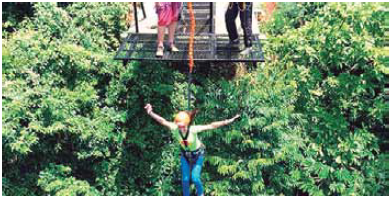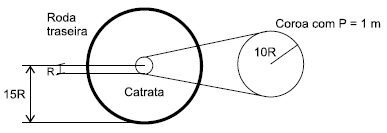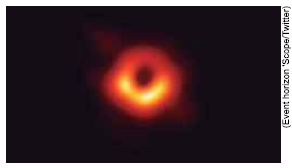Questões de Vestibular
Foram encontradas 68.929 questões
Resolva questões gratuitamente!
Junte-se a mais de 4 milhões de concurseiros!

Desprezando-se todos os atritos e a resistência do ar, considerando-se todos os fios e polias ideais e adotando-se g = 10 m/s² , sen θ = 0,5 e cos θ = 0,9, obtém-se a intensidade da força de tração no fio que liga o bloco B ao bloco C igual a
(https://viagem.estadão.com.br, 01.05.18. Adaptado.)

(aventurando.com.br)
Considerando que a resistência do ar seja desprezível, que a aceleração da gravidade do local seja igual a 10 m/s2 e que, nessa atração, o salto se dê a partir do repouso, o tempo total em que uma pessoa experimenta a sensação de queda livre antes de começar a ser freada pela corda elástica é de

(“A 202 km/h, brasileiro registra recorde mundial de velocidade em bicicleta”. vadebike.org, 28.11.2017. Adaptado.)
Considere que a coroa de 105 dentes, no centro da bicicleta, possui um perímetro externo P = 1 m, que o raio da catraca utilizada é 10 vezes menor do que o da coroa e 15 vezes menor que o raio da roda traseira, conforme o esquema a seguir:

No momento em que o ciclista está à velocidade de 201,6 km/h, a frequência de giro da coroa é de, aproximadamente,

(“Foto de um buraco negro é revelada pela primeira vez na história”. https://revistagalileu.globo.com, 10.04.2019. Adaptado.)
Considerando que um ano-luz é a distância percorrida pela luz em um ano, no vácuo, com velocidade de 3 × 108 m/s e que um ano possui aproximadamente 3,15 × 107 s, a distância entre esse buraco negro e a Terra é próxima de










(Paul Singer. “O processo econômico”. In: Daniel Aarão Reis (coord.). Modernização, ditadura e democracia: 1964-2010, vol. 5, 2014. Adaptado.)
Um dos motivos para essa contenção inflacionária durante o “milagre” foi
(Michelle Perrot. Os excluídos da história: operários, mulheres e prisioneiros, 2017.)
Na Europa, essa “promiscuidade” e os “amontoamentos” decorreram
(Francisco M. P. Teixeira. História concisa do Brasil, 1993. Adaptado.)
Os “setores hegemônicos das elites” mencionados pelo historiador eram
(Hamilton de Mattos Monteiro. “Da independência à vitória da ordem”. In: Maria Yedda Linhares. História geral do Brasil, 2016.)
As afirmações do excerto podem ser exemplificadas pela